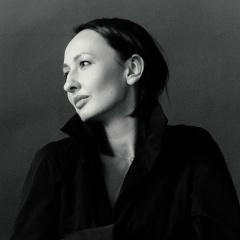Много сил и энергии П.Ф. Лесгафт затратил, критикуя систему воспитания детей, созданную немецким педагогом, теоретиком дошкольного воспитания Ф.В. Фрёбелем (1782-1852), создателем понятия "детский сад". П.Ф. Лесгафт был хорошо знаком с практикой фрёбелевских детских садов за границей, а также русских платных детских садов в Петербурге и считал их учреждениями, не отвечающими требованиям правильного воспитания и развития детей: “Собирая детей для общих систематизированных занятий с двух с половиной до трёхлетнего возраста, когда они только повторяют (имитируют) всё их окружающее и когда у них ещё нет ни наблюдательности, ни опытности, содействующих их рассуждениям и более или менее самостоятельным их действиям, можно поддержать и развить у них только стадные проявления, в ущерб их индивидуальным наклонностям и развитию их характера”. Лесгафт удивлялся, почему часто вполне обеспеченные родители отдавали своего единственного ребенка в детский сад, и считал, что передачу детей в детский сад “можно было бы допустить разве при отсутствии родителей или невозможности их заняться своими детьми”. Детский сад должен походить на простую семью, считал он, иметь удобное помещение; детям должна быть предоставлена большая свобода в играх и занятиях, особенно на открытом воздухе. Указывая, что естественной и незаменимой воспитательницей детей дошкольного возраста является образованная мать, Лесгафт считал необходимой и неотложной задачей развитие женского образования в России.
A lot of strength and energy P.F. Lesgaft spent criticizing the system of parenting created by a German teacher, theorist of preschool education F.V. Fröbel (1782-1852), the creator of the concept of "kindergarten". P.F. Lesgaft was well acquainted with the practice of Froebel kindergartens abroad, as well as Russian paid kindergartens in St. Petersburg, and considered them to be institutions that did not meet the requirements for the proper upbringing and development of children: “Gathering children for general systematic classes from two and a half to three years when they only repeat (imitate) everything around them, and when they do not yet have the power of observation and experience that facilitate their reasoning and more or less independent actions, they can be supported and developed by s only herd of manifestation, to the detriment of their individual inclinations and development of their character. " Lesgaft wondered why often well-to-do parents often sent their only child to kindergarten, and believed that the transfer of children to kindergarten "could only be allowed if there were no parents or it was impossible for them to take care of their children." Kindergarten should be like a simple family, he believed, to have a comfortable room; children should be given greater freedom in games and activities, especially in the open air. Pointing out that an educated mother is a natural and indispensable teacher of preschool children, Lesgaft considered the development of female education in Russia a necessary and urgent task.
У записи 7 лайков,
4 репостов.
4 репостов.
Эту запись оставил(а) на своей стене Лю Дизель


























